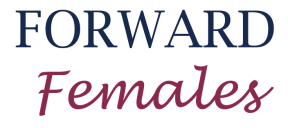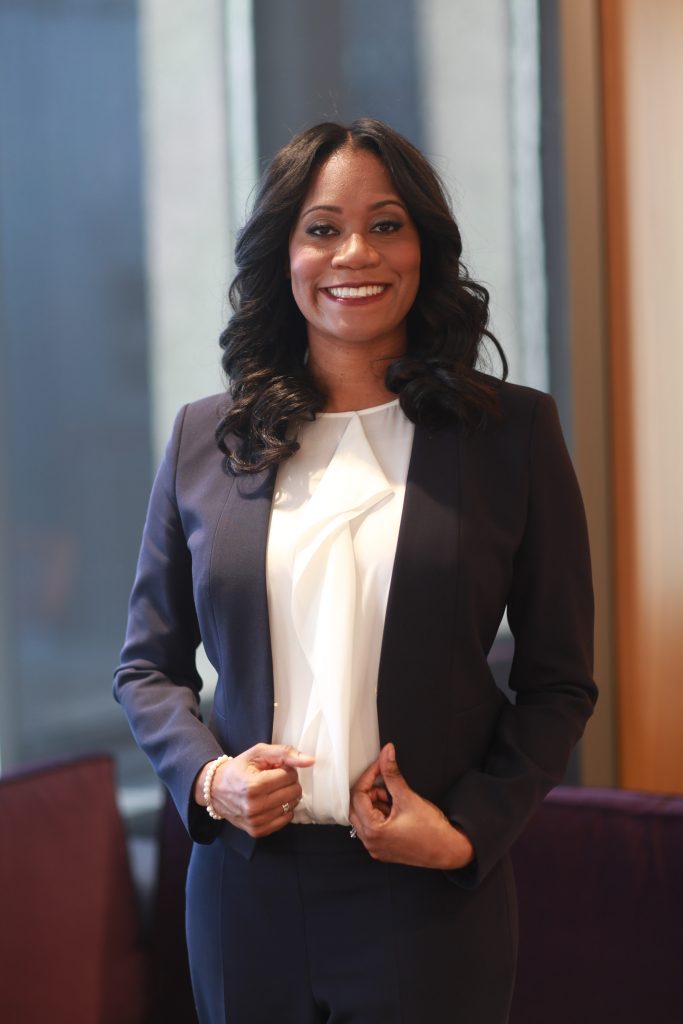
Damali Peterman is the CEO of both Damali Law LLC and Breakthrough ADR (Alternative Dispute Resolution). She has extensive experience in corporate law, mediation, negotiation, and conflict resolution. Peterman teaches people how to listen, negotiate and resolve everyday situations in the workplace and beyond. She is a highly skilled mediator and conducts trainings for Fortune 500 companies, educational institutions, government entities, nonprofits and small businesses. Prior to starting Damali Law and Breakthrough ADR, Peterman worked at Weil, Gotshal & Manges in the Mergers & Acquisitions group and then at Deloitte as Assistant General Counsel.
What led you to start your two companies – Damali Law and Breakthrough ADR?
Following the U.S. Presidential election in 2016, I felt we needed more conflict resolution. I was also thinking about the legacy that I hoped to leave. My Masters degree is in International Policy and Conflict Resolution and I wanted to use my skillset to help more people. I started Damali Law LLC, a boutique law firm that focused on preserving relationships and finding the best solution for any given situation. At the outset, Damali Law had a traditional legal business as well as educational training resources and mediation.
Later I decided to separate the legal component from the non-legal side of the firm. I founded Breakthrough ADR, which is focused on conflict resolution and crisis management. Sometimes the better solution does not require legal action. In addition to running these two companies, I also judge international mediation competitions and work on educational trainings for both public and private organizations. I’ve done trainings for the New York Police Department and the New York Department of Education, among others.
Who is a typical client of Damali Law vs. a typical client of Breakthrough ADR?
Damali Law has three main clients: 1) small to medium sized companies that have a need for external general counsel to negotiate and draft contracts both internally and externally, 2) individuals/influencers/authors who need a lawyer to review their contracts and get them the terms they need (to have an intermediary between them and the contract counterpart), and 3) people who want to start a for profit or nonprofit company.
Breakthrough ADR’s clients are companies who desire support with training and consulting for their staff and management with respect to conflict resolution, management and prevention.
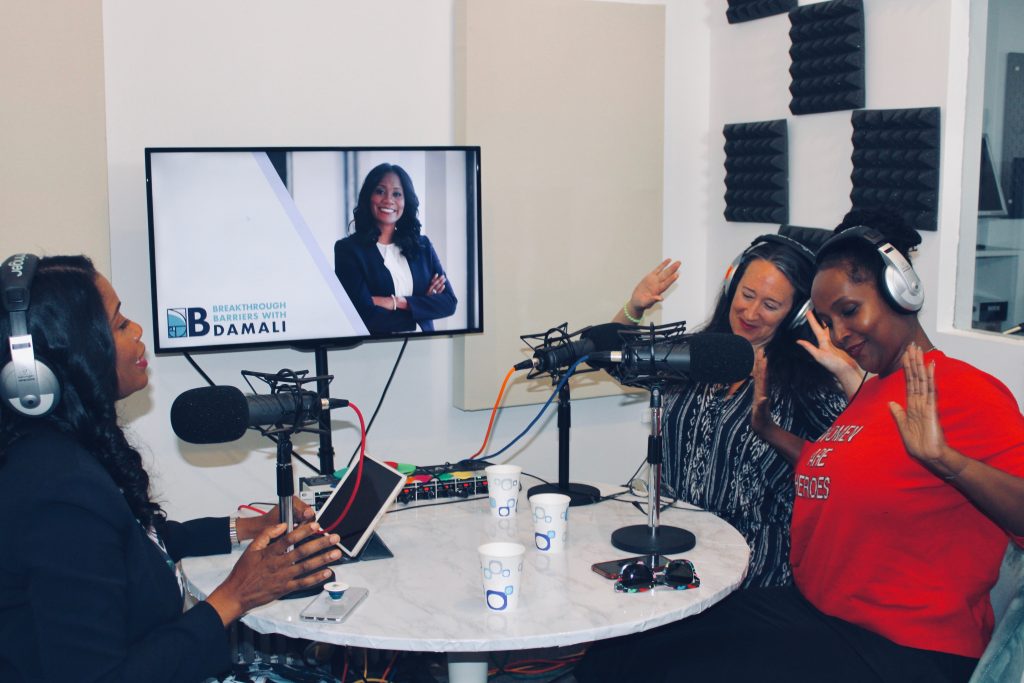
How do you attract clients?
Clients find us through word of mouth, social media (LinkedIn especially) and Google – we have a 5 star rating on Google.
When do clients decide to pursue mediation instead of legal action?
Clients have to be aware that mediation is a viable option for dispute resolution in order to choose mediation over litigation. Litigation is popularized on TV and in pop culture. Most people’s orientation with mediation is usually in the context of divorce or family matters. At Breakthrough ADR, we spend a lot of time doing outreach and education so that people know that there are alternatives to litigation before they actually have a problem.
Why were you interested in conflict resolution?
I’m the oldest of seven kids, so you can imagine how much conflict resolution I’ve been doing from a young age.
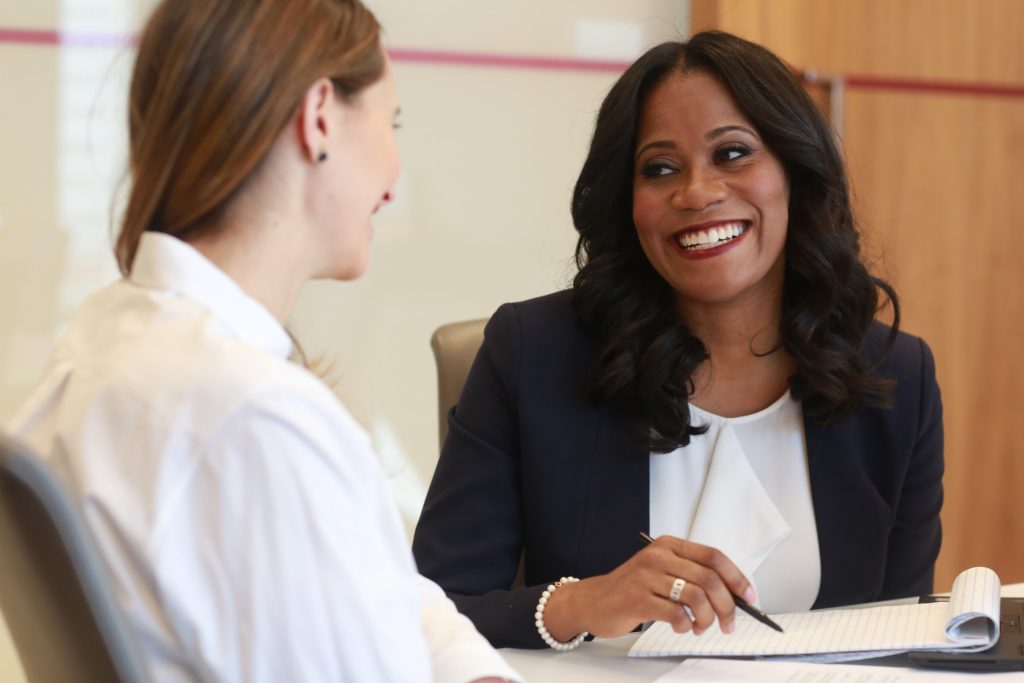
Why do you think that the world is more divided than ever?
The U.S. is a very polarized nation. In 2020, many things that were occuring in the background were suddenly revealed. For example, 800,000 women had to leave the workforce. We haven’t seen that number in a long time. Many women were forced to resort to the more traditional role of homemaker. Race relations and racial injustice have come to the forefront. Distinctions between public and private education have become more prominent. Currently, most kids in public school are not going to school five days a week. Instead, it’s a blended model of virtual and in-person learning. [Editor’s note: since the time of this interview, many more public schools have closed]. Most kids in private schools are attending school full-time. The disparities that we’ve ignored are now coming into the foreground.
How has the covid pandemic affected your work?
There’s always a demand for quality legal assistance. At the start of the pandemic, people were trying to get a better handle of what their contracts allowed them to do since they were suddenly facing an “unforeseeable” situation. We were very focused on contract negotiation. One of the positive results of the pandemic has been the shift from in-person meetings to virtual meetings. This has benefitted people who can now attend trainings virtually and it has expanded my reach.
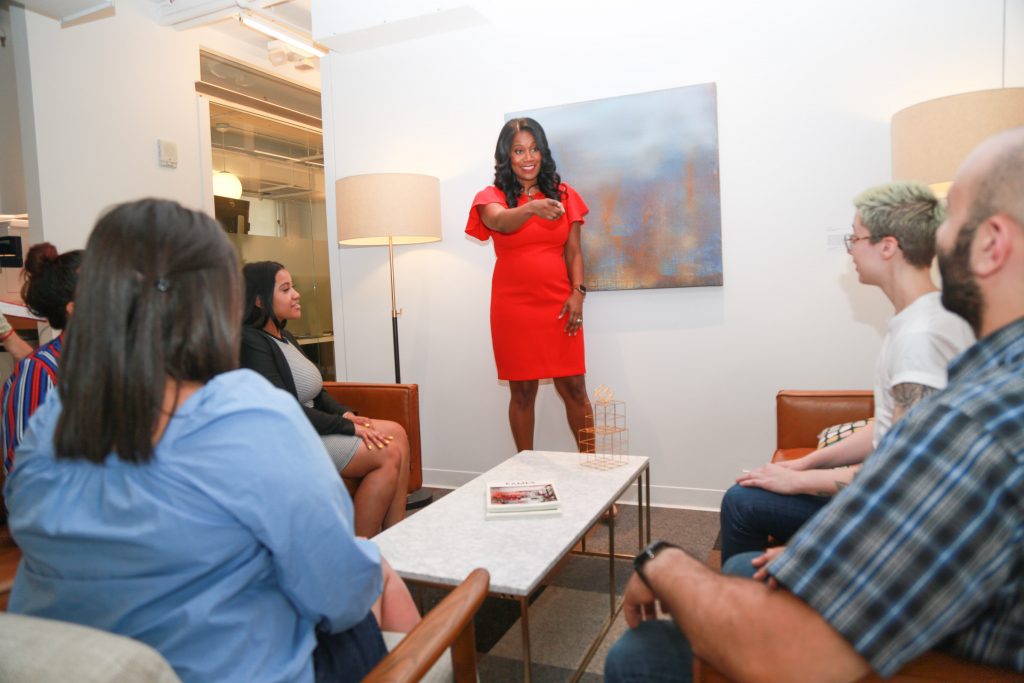
What are your short-term and long-term goals?
In the short-term for the legal practice, I’m continuing to evolve and keep up as the law changes. On the conflict resolution side, it’s important to do outreach and inform others that there are people like me who can help them with conflict de-escalation.
In the long-term, I want to empower people to independently resolve their conflicts. I want to educate people so that the next time, they can do it on their own.
What are you most proud of?
I’m really proud of the work that I’m able to do with Breakthrough and the community of conflict resolvers that we’ve created. I’ve built a brand and given people the tools to resolve conflict at work and beyond. It fills a gap that I saw in the ADR world. I’m empowering individuals to find solutions to their problems.
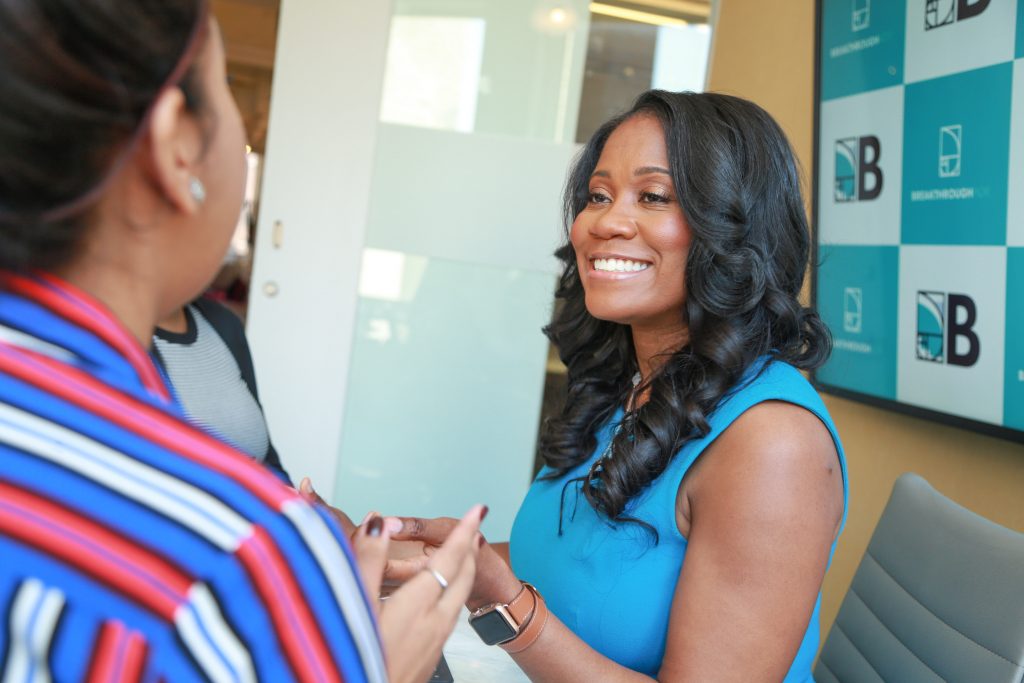
What are you struggling with these days?
Self-care. I feel like I’m busy trying to help people become conflict resolvers while also helping my children succeed, but I’m neglecting myself. I need to carve out more time to take care of myself.
The polarization of the U.S. I’m an American and the fact that our nation is so divided keeps me up at night. As a problem solver, I want to facilitate conversations on all political sides. Something has to change in this country to protect our democracy. We now have a lot of data from the election and we have to use that information to heal.
Coronavirus. Nobody knows what’s going to happen. What will the impact of school closings be? What is the long-term effect of quarantine?
Who inspires you?
My mother. She always told me that I can do anything and be anyone. There are so many stereotypes of what people can and cannot do, but my mom – the person I trust most in the world – told me there were no barriers.
